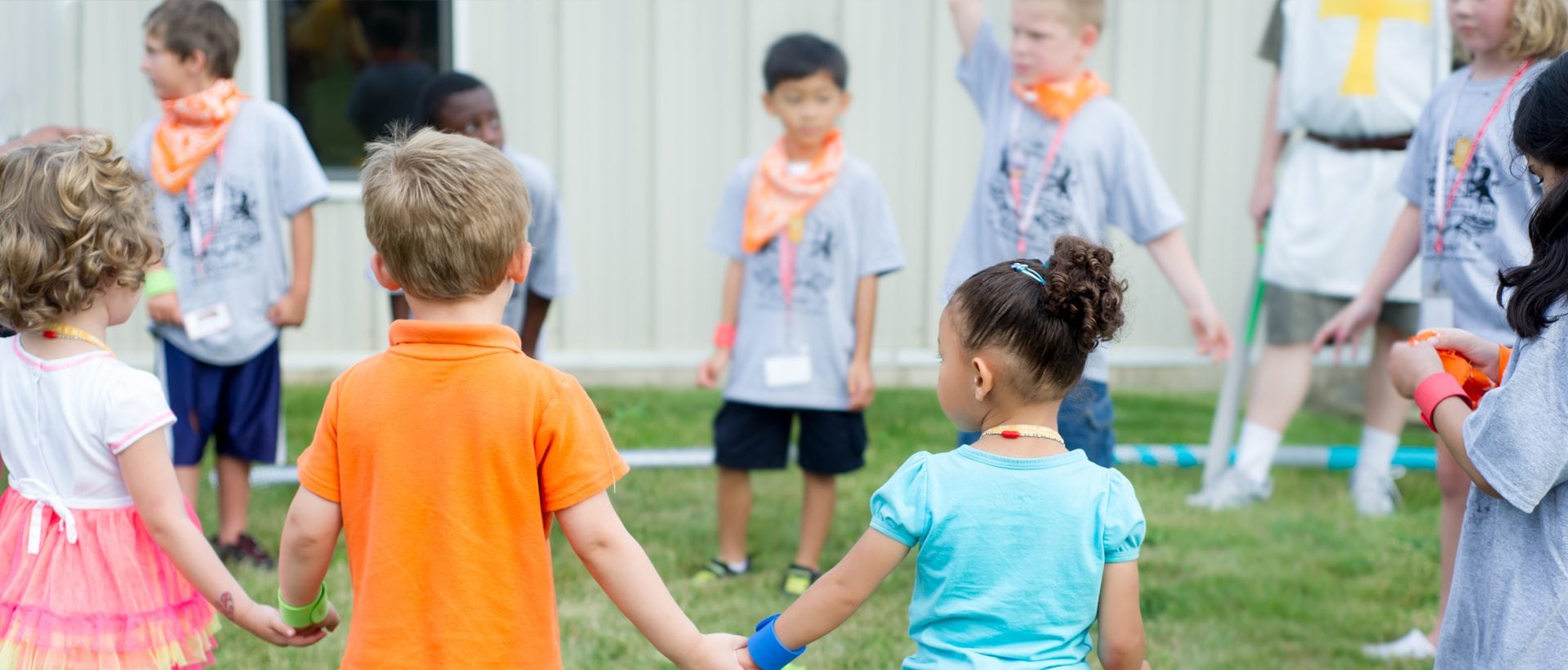At a recent family gathering my siblings and I were reminiscing about the songs we sang and loved in the ’80s. My 74-year-old father chimed in, singing a song we’d never before heard. His mother had taught it to him as a child. The song was Charles A. Miles’s “Wide, Wide as the Ocean,” written in 1914:
Wide, wide as the ocean, high as the heaven above;
Deep, deep as the deepest sea is my Savior’s love.
I, though so unworthy, still am a child of his care;
For his Word teaches me that his love reaches me everywhere.
More than 60 years later, he still knew the song by heart.
Learning By Heart
I think about this memory often as I lead singing for the children’s ministry at our church. We gather all our kids ages 3 to 11 to sing Scripture songs, worship songs, and, more recently, the songs from The New City Catechism. I’m convinced that memorized truths can be building blocks for lives of Christian obedience. This memory-heart-life connection is everywhere around us.
Take memorizing poetry, for example. Poet Brad Leithauser speaks to a different sort of knowing that comes through memorization:
The best argument for verse memorization may be that it provides us with knowledge of a qualitatively and physiologically different variety: you take the poem inside you, into your brain chemistry if not your blood, and you know it at a deeper, bodily level than if you simply read it off a screen.
Or take jazz as another example. Improvisation is intrinsic to the genre of jazz music. If you give an untrained musician a saxophone and ask him to improvise, the results will be ear-splitting. Rather than requiring mere spontaneity, jazz improvisation comes from years of honing a craft and storing up physiological memory. Only after years of training and amassing a repertoire of songs—building blocks, you might say—can a musician truly improvise. Order lays the foundation for innovation.
Ethicist Oliver O’Donovan makes a wonderful distinction here: “Spontaneity is doing what comes into your mind. Freedom is not doing what comes into your mind; freedom is doing what you have in your mind.” In other words, freedom is the ability to do what you have intentionally learned by heart. This could stand as a definition of the virtuous life.
Freedom is the ability to do what you have intentionally learned by heart.
The psalmist prays, “I have stored up your word in my heart, that I might not sin against you” (Ps. 119:11). For the Christian, a critical step of obeying God and living a virtuous life is to store up good things in the heart and mind. Memorized axiomatic truths—from Scripture and our theological tradition—are not sufficient for a life of obedience, but they are necessary.
Music and the Heart
Music specifically aids in this heart-level memorization in four key ways.
First, music adds confidence and creativity to learning in childhood. Countless studies make this point. For example, Michelle Tomlinson of Griffith University in Queensland, Australia, notes that more music in early-childhood learning “helps children establish strong, confident, vibrant, and creative identities in learning, communication, and performance.”
Second, music is unparalleled in how it activates brain activity, which is why it serves as such a powerful mnemonic device. In a 2013 study involving brain imaging, music activated nearly all areas of the brain—the auditory, motor, and limbic (emotional) regions.
Indeed, research has demonstrated that music is so deeply meaningful in our youth and formative years that memories tied to music live on even in advanced Alzheimer’s patients. Many have been touched by a now-viral video clip of Henry, a resident reawakened by listening to Cab Calloway, a musical favorite from his childhood.
Third, music is central to the Christian religious heritage. The short catechism songs are simple, but also beautiful. When done well, music unites the mind and emotions in worship.
Fourth, music accentuates the communal nature of learning. Adults and children in our church sing The New City Catechism together. Singing fosters communal memories through shared experience.
Music is a valuable tool not only for learning words but in also forming the singers in virtue. The very practice of singing God’s truth unites heart and mind in aspiration of a life that honors our Savior. And it connects the generations together in contexts where our youth observe and learn from adults more practiced in virtuous living.
Thus Sings My Soul
In our fast-paced, individualized culture, catechesis helps adults slow down and consider what truths shape how we live. As our kids learn to worship, pray, read, eat, play, and forgive . . . so do we.
You likely have your own songs to help in this formation, but I commend songs from The New City Catechism as a helpful tool. And also “Wide, Wide as the Ocean”—which I’ll be teaching to our Sunday school this fall.
Now available: The New City Catechism Curriculum, 52 lessons designed to help children ages 8 to 11 learn the core doctrines of the Christian faith in a Sunday school, classroom, or homeschool setting. Order yours today!
